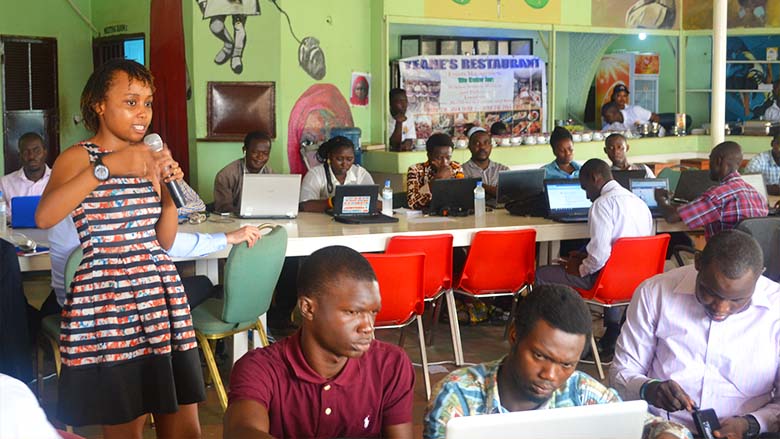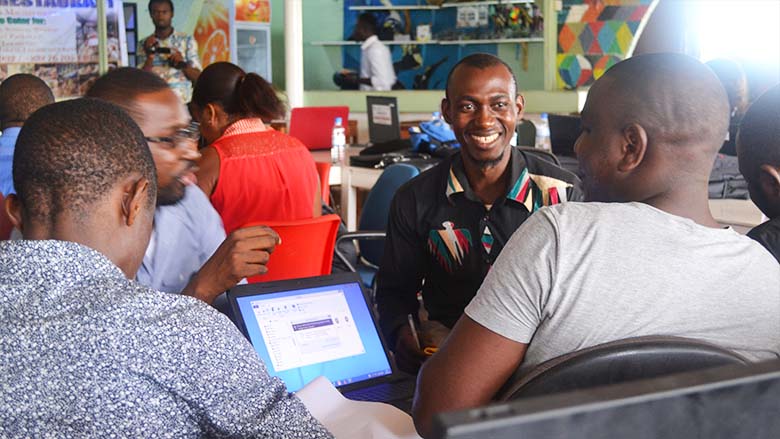Fragile States and Data
The outlook, however, wasn’t always as promising. Sierra Leone experienced a devastating civil war from 1991-2002 that resulted in over 70,000 casualties and an estimated 2.6 million displaced persons. The country then suffered through the Ebola outbreak from 2014-2015, which, besides the public health toll, has also had a severe effect on the social and economic well-being of citizens.
Even today, less than 2.5 percent of the population has access to the internet, and over 40 percent of the population is illiterate. With the cards still stacked heavily against Sierra Leone, low-tech ICT solutions, such as SMS-based applications and methodologies, are the only way to reach the broader population.
Regardless of the format, the public demands open access to data for greater transparency of government practices. Data is also needed by both government and development partners for improved efficiency in the use of development resources and delivery of public services.
Two challenges arise, however, when fostering a data literate environment. The first challenge is making sure civil society members have the skills necessary to access, understand, and use data. The second challenge involves bringing together the necessary skillsets to create an enabling environment for the development of home-grown ICT solutions for local development problems.
Boosting Data Literacy and Leveraging Local Skills
The Bootcamp successfully trained over 55 participants to tackle the data literacy challenges mentioned above, with instruction by coders, developers, and development practitioners from Sierra Leone, Kenya, Nigeria, and a few other countries. The training took place in Freetown’s Sensi Tech Hub, a tech innovation hub that is helping build a tech innovation community in Freetown, with the assistance of iDT Labs. Trainings involved learning about and working with a number of freely available data literacy tools.
Below are the five winning teams and their projects:
- Know Your City Campaign – Mapping of hazard areas in Freetown prone to flooding and other natural disasters.
- Mbate Konli (Solve Cholera) – A voice-response service that helps citizens locate nearest health center, home treatment, or ambulance service during cholera outbreaks.
- Memba O! – A parliamentary watchdog app to provide citizens with information on their elected officials, such as their attendance and voting records.
- mWash – Water and sanitation app that maps all public water points, as well as disseminates information on sanitation and hygiene.
- The Free Health Care App (FHCApp) – App that helps restore citizens’ trust in the free health care system by helping expose fake doctors, check medicine availability, and hospital ratings.
Around the world, ICT solutions have proven to be particularly adept at addressing intractable development problems. In Ethiopia, for instance, reliable and cheap access to prices in central or regional markets via SMS has helped address the issue of asymmetric information among farmers.
June’s Data Literacy Bootcamp demonstrated that not only does demand for the use of data exist in Sierra Leone, but so does the potential. Sierra Leoneans themselves have the ideas — and increasingly, the requisite ICT skillset, as can be seen by Freetown’s nascent tech community — to address some of their development problems with ICT solutions.
Given the importance of local knowledge, Sierra Leone’s innovation tech community is best positioned to design and implement these apps. The World Bank is excited to follow the incubation and development of the apps from the Bootcamp’s five winning teams.


